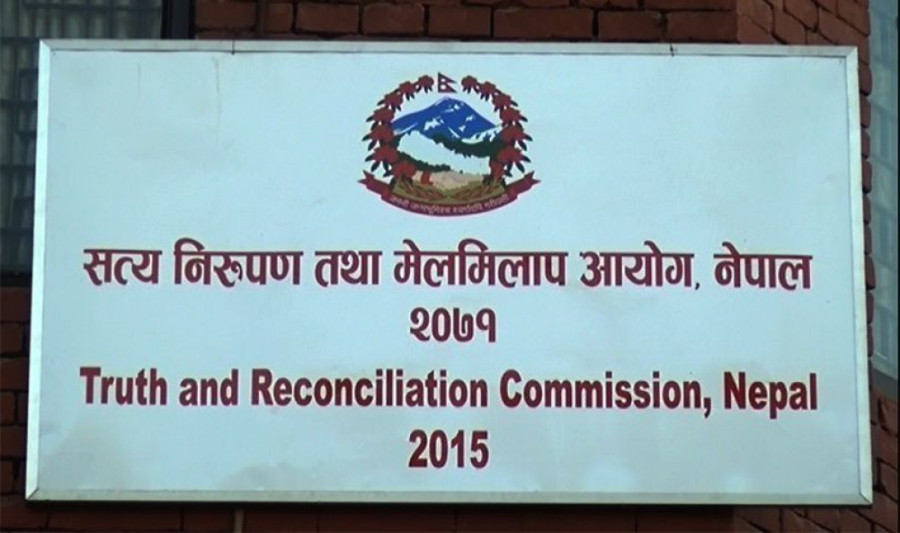National
Transitional justice delayed as selection panel misses deadline
The panel tasked with picking office bearers of the two transitional justice bodies could not agree on TRC chair.
Binod Ghimire
The recommendation committee to pick office bearers in two transitional justice commissions has exhausted its two-month-long tenure without completing its responsibility.
The former Chief Justice Om Prakash Mishra-led committee formed on October 18 had until Monday to recommend the chairpersons and the members for the Truth and Reconciliation Commission (TRC) and the Commission of Investigation on Enforced Disappeared Persons. However, the five-member committee couldn’t make the recommendations, mainly due to the differences over the name of the TRC chair.
“As the committee could not have consensus on some issues and as recommendations made through majority would have lasting implications on the peace process… it is recommended to the government to start the selection process afresh,” reads a statement issued by Khamma Bahadur Khati, spokesperson at the committee.
The government needs to constitute another recommendation committee to select a five-member team led by a chairperson in each commission after the Mishra panel conceded failure in fulfilling its job in the prescribed time. On December 6, the panel had shortlisted 40 individuals for the 10 positions including eight for chairpersons.
It picked Sudip Pathak, a former member of the National Human Rights Commission; Kashi Raj Dahal, former chairperson of the Administrative Court; and Sher Bahadur KC, a former president of the Nepal Bar Association, as possible candidates to head the truth commission.
Similarly, retired high court judges Achyut Prasad Bhandari and Dilli Raj Acharya; Bijay Sijapati, former dean of the Faculty of Law under Tribhuvan University; Bishwo Raj Koirala and Mahesh Thapa, both retired deputy attorneys general, were shortlisted to head either of the two commissions.
There had been a broader agreement that a person close to the Nepali Congress would get chair of the TRC while the CPN (Maoist Centre)’s pick would be chair of the disappearance commission. Each party had demanded leadership of one of the commissions as they were the signatories of the peace process.
The ruling Congress was initially backing Pathak for TRC chair but following reservations over his name from different quarters, it had projected Koirala for the role. However, Mishra and Manoj Dawadi, a member of the recommendation committee representing the National Human Rights Commission, couldn’t agree on Koirala’s name because of serious charges against him, according to those who closely followed the process. As the Congress did not budge, the committee ended up conceding failure to pick the names.
The victims’ representatives say it is unfortunate that political meddling has pushed their quest for justice further back.
“There was an opportunity for the political leadership to correct past mistakes by appointing right persons on the commissions,” Suman Adhikari, founding chairperson of the Conflict Victims Common Platform, told the Post. “But they have again shown that they are least bothered about concluding the transitional justice process and delivering justice.”
The Mishra-led panel had received 156 applications from among retired judges, government officials, legal experts, rights defenders, and the victims of the decade-long Maoist insurgency. However, it considered only 128 names, claiming that the remaining 28 individuals were recommended by different organisations without their personal consent.
Some of the shortlisted candidates including Dahal and Sijapati, among others, had not applied themselves. Their names were included by the committee after consulting them.
The two commissions have been defunct since July 2022, when the government extended their terms without retaining their chairpersons and members. The government claimed the bill to amend the transitional justice law would be endorsed by October 2022, and the appointments would be made based on the revised Act.
However, the federal parliament took more than two years to endorse the bill. The victims and human rights defenders are now closely watching who will be appointed to the commissions.
The amended Act sets four-year terms for the two transitional justice commissions to investigate the cases and recommend prosecution and reparation. But if they fail to accomplish their tasks in the given time, they may be granted a term extension.
The truth commission has received 63,718 complaints, while the commission on disappearances is sitting on around 2,400 cases. As the recent amendment to the Act has included a provision to allocate an additional three months to collect the applications, the number will further increase.
The commissions, first formed in 2015, have done little beyond collecting complaints and conducting preliminary investigations on some cases. The to-be-formed commissions will be the third to be constituted in a decade.




 18.12°C Kathmandu
18.12°C Kathmandu














